How to Build a Healthy Habit of Self-Reflection
Self-reflection is a healthy habit that can lead to a more fulfilling and satisfying life. It allows us to take a step back and analyze our thoughts, feelings, and actions to better understand ourselves. It is especially important for those diagnosed with cancer, as their lives have been turned upside-down. If you’re not used to reflecting on yourself, it can be a bit uncomfortable to start. But it can be quite simple using the tips in this article. You just need to start your self-reflection practice.
This post contains affiliate links. As an Amazon Associate, I earn from qualifying purchases.
What is Self-Reflection?
Self-reflection is the internal process of looking into yourself to better understand your thought processes, behaviors, emotions, passions, and strengths. Intentionally making time for self-reflection is essential. This prepares you mentally for an exercise in deep, honest thought and gets your brain into focus mode. You should never be rushed or open to distractions or interruptions. Perhaps think of self-reflection as a form of meditation.

Why is Self-Reflection Important for Your Well-Being?
Self-reflection allows you to understand yourself, which in turn allows you to better understand the world around you. It is a way to gain comfort with your unique personality and become more confident in who you are.
Recent studies reveal that we have over 6,000 thoughts per day. Other research suggests that at least 50% of these thoughts tend to be negative and self-defeating. Reflecting on your thoughts, emotions, and behavior in a neutral, non-judgmental way helps you better understand yourself. This fosters self-growth, self-compassion, and positivity. With continued practice, this leads to resiliency to daily stress, self-confidence, and better mental health. Ultimately, the result is improved physical health and happiness.
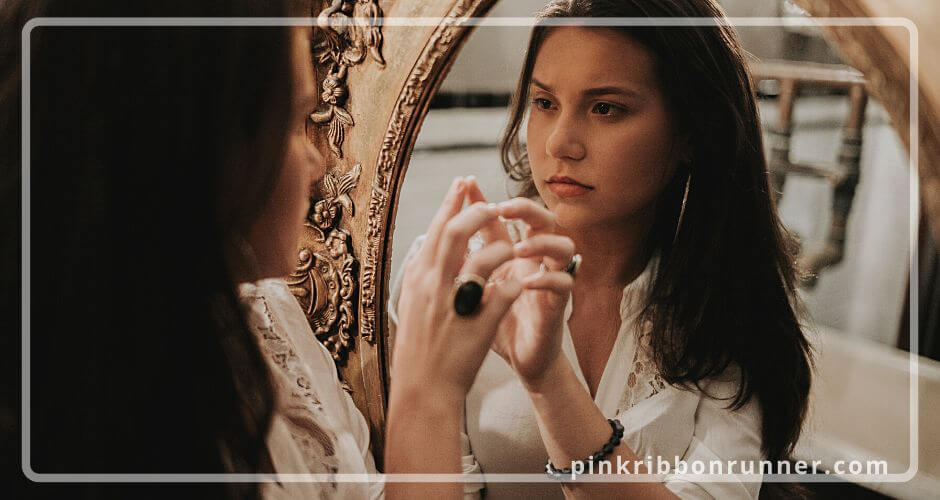
What are the Benefits of Self-Reflection?
Self-reflection is necessary to lead a better, more intentional life. Developing a healthy habit of introspection has many mental benefits. And better mental health ultimately leads to better physical health. You handle daily stress better and you understand what you need to be at your healthiest.
Just look at all the positive benefits you may experience with routine sessions of self-reflection…
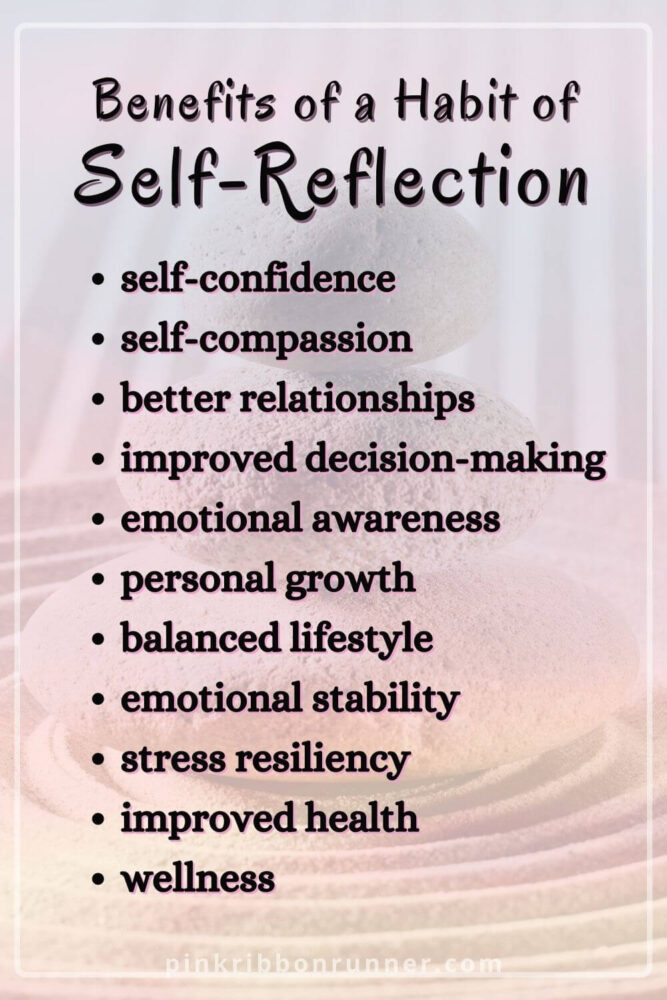
Getting to know your true self can help you find your purpose in life, which for most people is one of the keys to fulfillment and happiness.
5 Tips for Making Self-Reflection a Habit
Below are 5 simple tips for making self-reflection a healthy habit in your life.
1. Set Aside Some Time for Reflection.
This can be at night before you go to bed, in the morning as you are making your breakfast, during a lunch break, or any time throughout the day. It could be once a month, bi-weekly, or weekly. Perhaps you might even start tonight with a nice relaxing soak in the tub and start your self-reflection practice.
Make sure the time you choose is quiet and that you won’t be interrupted. Put it in your calendar and treat it as an appointment with yourself, not to be missed.
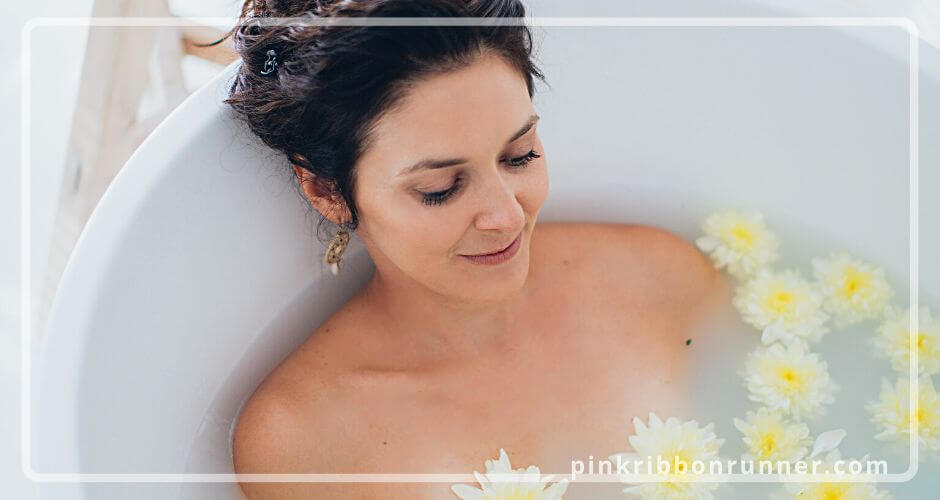
2. Make It a Priority to Reflect on Your Life.
The best way to build a healthy habit of self-reflection is to make it a priority in your life. Getting to know your true inner self should be everyone’s goal. Focus mostly on your successes to learn how to continue your success in life. What were the strengths that led to your wins?
3. Look Inward to Better Understand Yourself
To learn about your true motivations, thoughts, and feelings you must first look inward. This is called introspection. It is the process of observing your unique thoughts, feelings, and behaviors. Then reflect on what these mean to develop better self-awareness.
Ask yourself questions that reveal who you are and what your internal drives are. What makes you tick? What keeps you moving forward? In other words, what makes you… YOU?
4. Look Outward to Understand Influences and Impact
We do not live in a bubble. We are constantly surrounded by people, events, and things that influence our behavior. And we react to these influences. We also have an impact on other people and alter their interactions with us.
So, understanding how others influence your actions requires some self-reflection. And to assess how your actions influence other peoples’ behavior towards you, spend some time trying to understand the connection.
5. Listen to Your Gut
You know yourself better than anyone, especially if you practice self-reflection often. Trust your gut instincts. The little voice in your head is your intuition, and it can help you make better decisions in all aspects of your life.

10 Best Self-Reflection Practices
The 10 practices below can help guide you in self-reflection. They are just suggestions on how to begin developing this new healthy habit in your life. These techniques are meant to be done one at a time, not all at once. So, pick one, find a quiet spot at a time when you won’t be interrupted and do a little introspection.
1. Identify An Area of Focus
Is there a problem you need to solve? Sometimes we need to do a little self-reflection when we are faced with a tough problem.
Perhaps there is something on your mind that you wish to explore in-depth. Self-reflection can help you better understand the issues that face you. It can also help identify steps toward a solution.
2. Ask Yourself Relevant Questions
You are the one who answers any question during self-reflection, so ask yourself whatever is on your mind.
Examples might include: What did I do well? What are my strengths? How did I overcome that obstacle? What made me happy? Journal prompts can help you with formulating questions to ask yourself if you are stuck.
Try to format your question as a positive, rather than focusing on the negative or what went wrong in your life.
3. Confront Your Worries
Put your worries, anxiety, and fears into perspective. Reflect on them honestly and realistically. If you can, try to pinpoint the root cause. Calm your imagination and focus on a real solution. Avoid going through the “what if” and “but” sentences in your head.
If you find this to be an overwhelming area, keep it short. Try some deep breathing exercises in between brief sessions of exploring your anxiety-provoking thoughts. If your troubles are too intense, then explore these areas with a mental health professional rather than tackling them on your own.

4. Reflect On Your Priorities
Think about some key tasks or actions that are crucial to navigating your daily life. How will these help you achieve a happier, more fulfilling life in the future? What is important to you right now, in this moment of self-reflection? How has this changed over time?
Write down your top 3 current priorities to keep yourself on track. Reflect on these often to ensure they are still relevant priorities for you.
5. Assess Your Relationships
Healthy relationships are vital to our emotional and mental well-being. They foster our self-confidence and self-worth and give us purpose and passion to achieve our goals and enjoy life. For those relationships that are important to you, reflect on how you can make them better.
6. Reflect On Your Health
For this self-reflection practice, focus on your health and any related goals you may have. Avoid beating yourself up over bad habits that potentially harm your health. Remember that self-criticism is not self-reflection. By taking some time to think about your physical and mental health, you can identify areas that need improvement.
Write down any health goals you decide on and determine the steps on how you can achieve them.

7. Put The Past in The Past
There is a difference between briefly reflecting on the past and dwelling on it. The goal should be to learn from the past, then move on.
It’s happened to the best of us. We’ve all held onto something from our past, whether it’s a grudge, an old wound, or just a bad memory. But dwelling on it does not do us any good. Perhaps it is time to reflect on how you can let go and move on. Yes, this is easier said than done, but it is worth it. You will feel lighter and happier without the baggage of the past.
8. Visualize Your Future
Close your eyes and create scenarios in your mind where you have achieved all your goals and dreams. Imagine that you are exactly where you want to be in life. The resulting flood of positive emotions tells your brain that this is something that makes you happy. It will then work to guide your thoughts and behaviors toward that future outcome.
9. Appreciate What You Have
According to Amy Collette in her book The Gratitude Connection, “Gratitude is a powerful catalyst for happiness. It’s the spark that lights a fire of joy in your soul.”
It is too easy to get caught up in what you don’t have. This just fosters feelings of unrest, wanting, jealousy, and dissatisfaction. It is important to take a step back and appreciate what you do have.
There are plenty of good things in life to be thankful for. Focus on gratitude often during your self-reflection sessions, and you may find the joy and happiness you have been looking for.
10. Find Meaning in Your Life
We all want our lives to be meaningful. What that looks like is, of course, different for everyone. It may mean you need to feel connected to a higher purpose or want to make a difference in the world. Perhaps doing something that you are passionate about gives you a sense of fulfillment. Or maybe you just want to enjoy life’s simple pleasures. Regardless, the first step in living a meaningful life is to reflect on how you define it.

Make Self-Reflection a Happy Habit
Self-reflection should not be a dreaded task or a dull routine. It should be something to look forward to, like a visit to a spa or a nice soothing soak in the tub. Set a comfortable ambiance and keep the exercise as positive as possible.
And keep in mind, while self-reflection is often seen as a solo activity, it can also be done with the help of a therapist or counselor. A mental health professional can provide guidance and support as you explore your innermost thoughts and feelings. If you’re struggling to make sense of your life, consider reaching out for help with self-reflection.
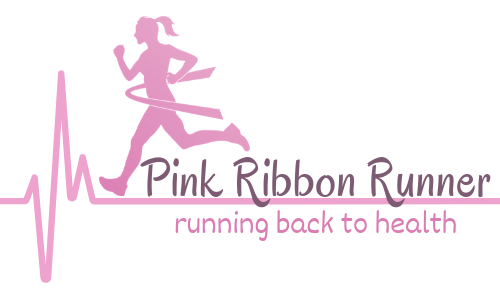
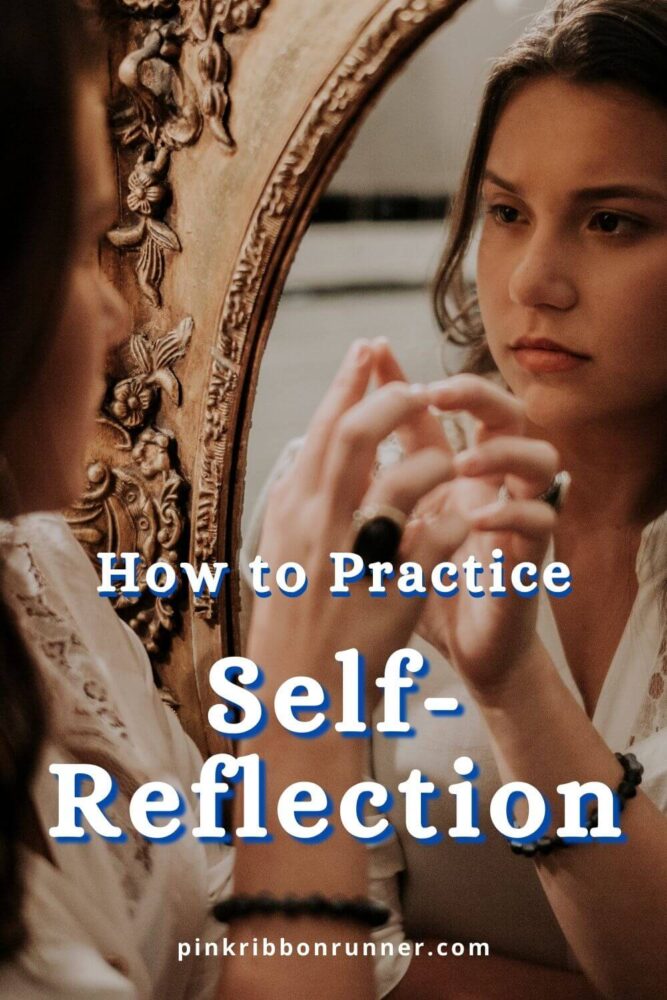
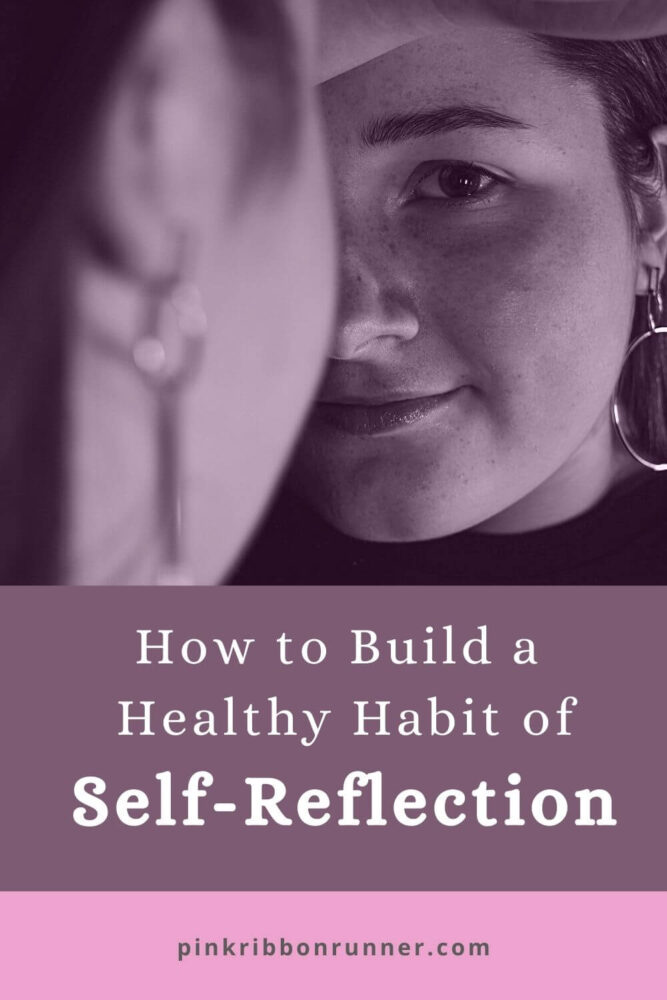



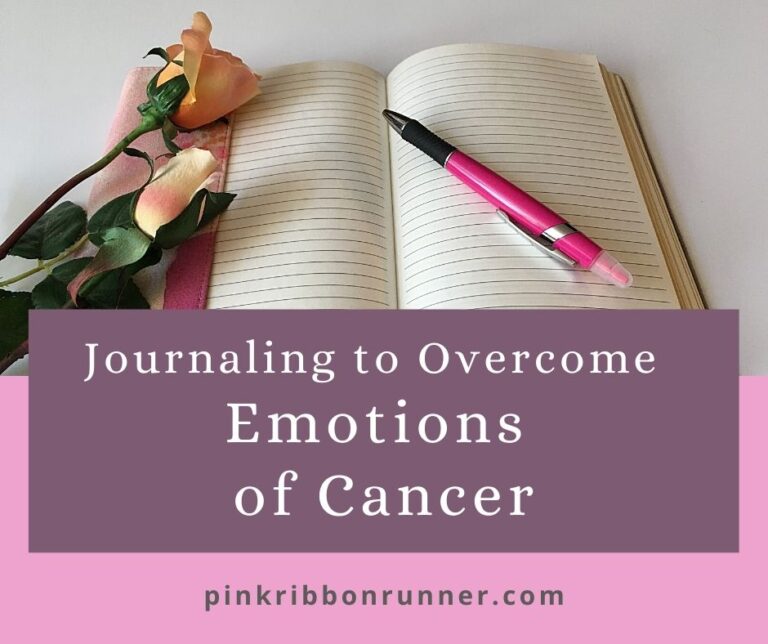



So informative, thank you
Amazing post..must read. Follow these healthy habits and see yourself as a better person.
These habits should be the resolution for 2023..what say?
This was a great read full of information but also thought provoking content to take action on. Saving this to refer back to!